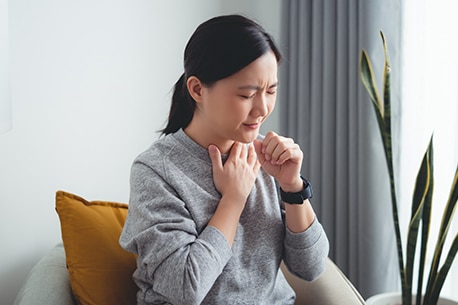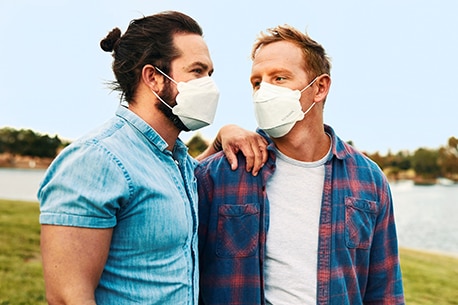COVID-19 is a viral respiratory infection and can feel like a common cold, the flu, or RSV. COVID-19 symptoms come on gradually and may appear 2 to 14 days after exposure. They can range from mild to severe.
Common symptoms:1
- Chills
- Cough
- Fatigue or weakness
- Fever over 100 degrees Fahrenheit
- Headache
- Runny or stuffy nose
- Sore throat
Rare symptoms:
Common over-the-counter medications can be used to treat your COVID-19 symptoms, such as taking acetaminophen (Tylenol) or ibuprofen (Advil, Motrin).2 If you aren’t sure, check with your doctor.
Explore more self-care and wellness tools to help you cope with stress, sleep well, eat healthy, and more.






